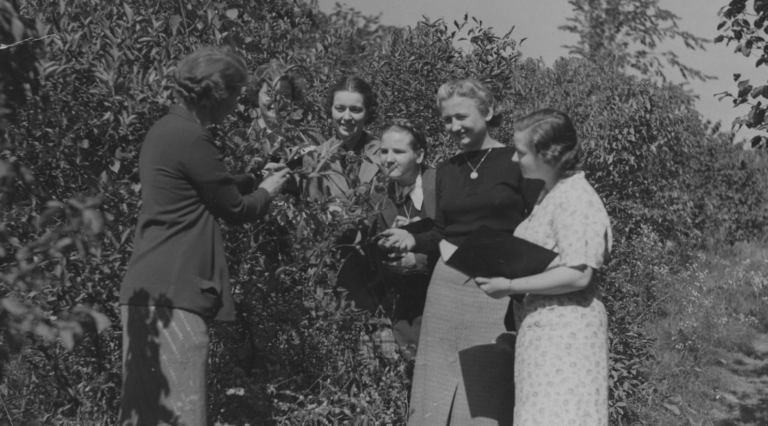The Daily has partnered with University Archives to shed light on Case Western Reserve University’s history each month. Follow The Daily to get your fill, and check out Digital Case to find even more information.
As Women’s History Month is celebrated around the country in March, we’re looking back on the history of Flora Stone Mather College for Women and, this week, its popular Squire Valleevue Farm.
Purchased by Andrew Squire, a trustee of Western Reserve University, and his wife, Eleanor, in 1911, the farm was given to Mather College in 1937 after the Squires passed away.
But the students of the women’s college had access to the farm for picnics, outings and research since 1930, using it for many purposes over the years. It was a working farm for a number of years, providing the campus with food for the dining rooms and serving as a location where students often helped with farm chores. The Pink Pig, a building on the farm, was used as a weekend residence for them.
Students also enjoyed skiing, ice skating, hiking and more on the farm, and several departments used the location as a place to conduct research. Franklin J. Bacon, originally a professor of pharmacognosy and later a professor of biology, lived at the farm, managing its operations, conducting classes and performing research. The faculty of the School of Pharmacy grew a medicinal herb garden at Squire Valleevue for many years before the school closed in 1949.
Squire Valleevue Farm now makes up a portion of Case Western Reserve University’s University Farm, a 400-acre property that boasts forests, ravines, waterfalls, meadows, ponds and a self-contained natural watershed. Owned by CWRU, the farm is the site of several buildings designed for educational, research, and recreational purposes.

